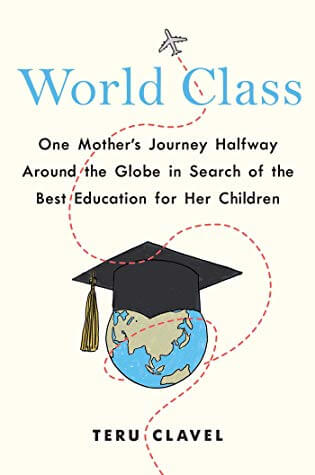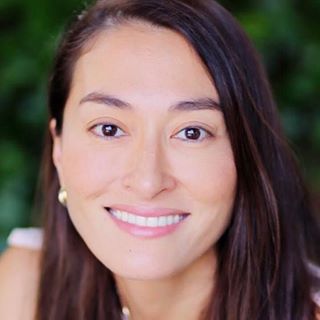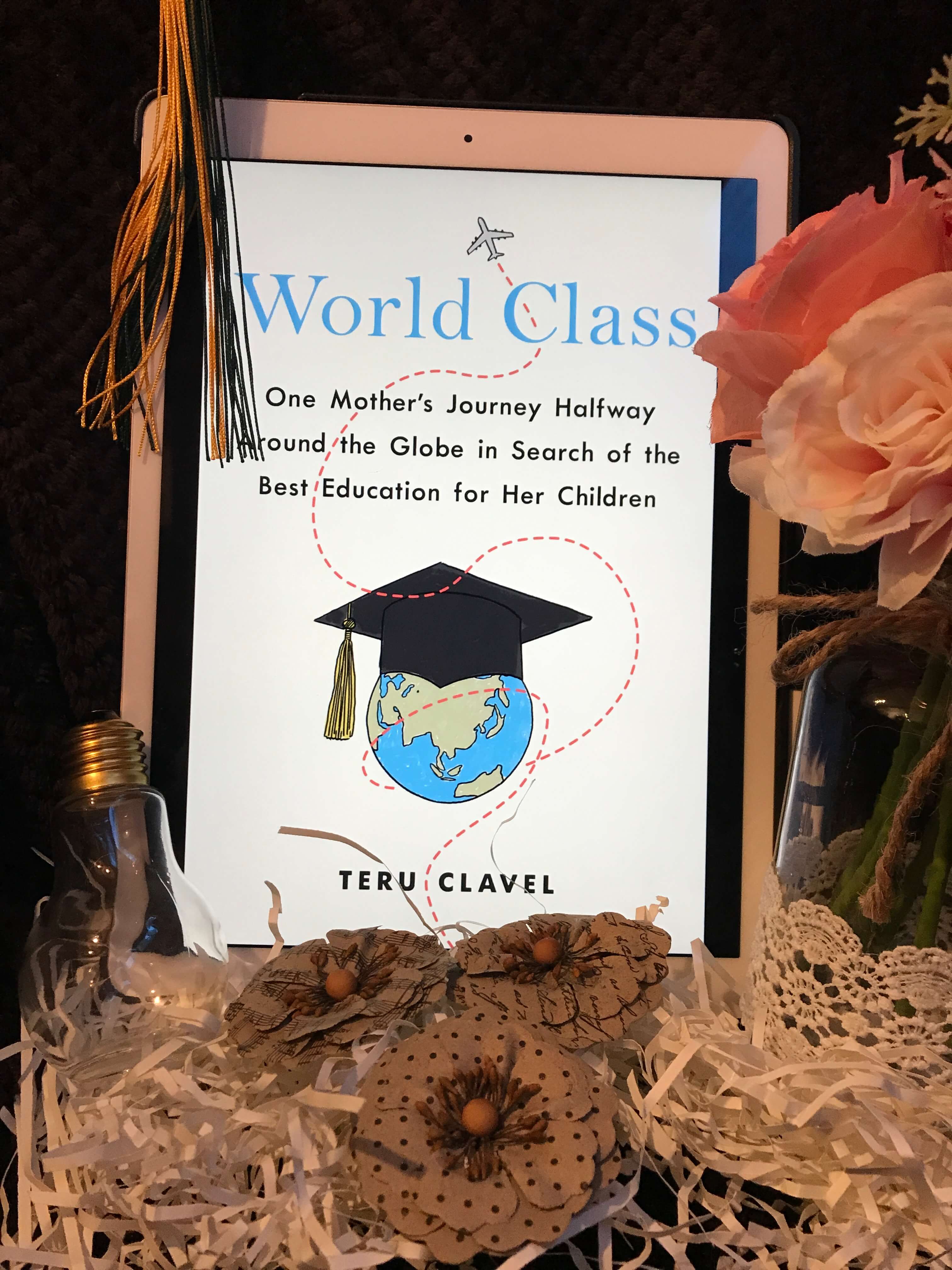

In my previous article, I reminisced about my education in India in the context of Teru Clavel’s recent book, World Class: A mother’s journey halfway around the globe in search of the best education for her children. I talked about language, culture, technology, relating them to Teru’s findings during her travels to China, Japan and Hong Kong.
In recent months, I have connected with Teru and when opportunity to talk to her about the book presented itself, how could I stay away? 🙂
- If you could take one thing from every education system that you have experienced, from your childhood to now, what would be the strength of each of those ways of learning?
Growing up, I attended a progressive school in NYC named Dalton. Although I did feel it lacked both socioeconomic and cultural diversity, it was so incredibly creative. I learned about paper making, Greek Gods through a festival and writing my own play, writing biographies about Emily Dickinson. The experience taught me to push myself outside of my comfort zone — I was very shy.
When my kids attended school in Shanghai, I learned such respect for the teachers who did whatever it took to teach my children to master the content. And they did so with such love. I truly felt like my children’s teachers loved them — they showed this by never ever giving up on them. It wasn’t about making the classroom fun and colorful — it was about dedication to their craft and establishing solid building blocks for my children.
And then in Tokyo, learning that you are a part of a larger context was vital. In the classroom, the kids took care of themselves and each other through cleaning the school and serving one another lunch. No task was too small. It humbles you. It teaches you to work together. And, there too, the teachers were masters of their craft and cared about every child. I would receive calls from their teachers at 7pm about anything that happened at school that I should know about — completion of an assignment, bringing something to school that maybe they did not understand… I felt that my children were very well cared for.

- I learn something from everything that I engage in, whether it is a book or a TV show. By naming your chapters after TV Shows, you were working through your past experiences and likes. What gave you the idea to include the TV shows?
Great question. Watching TV as a child, I learned about US culture because my home was culturally Japanese. We also spoke Japanese in my home. Gilligans Island, Three’s Company…. I thought that was truly how “Americans” lived. I was always terrified of The Twilight Zone (gave me nightmares, but I still snuck it in), and watching 20/20 made me feel smart. I actually got the idea when I was riffing with someone I was working with and talking about how great the shows of our youth were. And then it seemed to make perfect sense to use them as the framework for World Class — because it’s about my journey and my lens.
- What are ways we can teach kids the values that you admire about the Japanese schooling system, such as being janitors in the classroom, being independent and respecting their environment?
We are all a part of something far larger than ourselves. We are a part of a larger whole. And it is incumbent upon all of us to teach our children what that is. Part of it starts with modeling that behavior as adults as well. So, start with practicing that in your home. Do chores not for an allowance but because you are a part of your family ecosystem. Don’t just do your own dishes and put them in the dishwasher, do those of the other members of the family, for example. Outside, look around and talk to kids. Rather than getting angry with someone who may be boisterous in the street, explain to your children that maybe they had a really bad day. Be accepting. There are larger elements at play. Teach your kids to be gracious guests — leave a space cleaner than when you left it — we all share that space. Awareness and compassion are key.
- In North America, our need to make kids digital citizens has led to integration of technology in the classrooms. However, that does not always equate to teaching the kids computational skills, nor does it mean that technology is used meaningfully. It could be a substitution (like digital copy over hard copy) and never utilize all of its potentials. What are some essential areas that you believe school authorities and parents should think about where there they can truly engage their kids in skills that will help them in the long run?
Computers are a tool. That’s it. It should never replace human interaction. It should never replace teachers’ understanding of students and formative assessments. Tech also offers students skills like coding and access to information. And this can be the gateway to unleash so much potential in our children. But it must be monitored. Children do not have the discipline or critical thinking yet to control or discern all that the internet and social media can bring.
And the most important area to teach kids? A love and habit of learning. The default should always be, “Pick up a book.” The default should never be tech, which I believe is increasingly the case with our children. Bored? Then you never will be if you always carry a book and read. If they ask a question, go to the library to get a book with the answer. If they show an interest in anything, go to the library and get books on it. Subscribe to magazines and daily newspapers (hard copies always) on current events and their interests.
Have a library with loads of books and reading nooks with bean bags in your home. Go to the library at least once a week. “Read read, always read” — last line of my book.
- Your top five must-read books about teaching and learning that every parent/teacher should read are…
An eclectic mix, but here are a few that changed my life and the way I think about learning:
- John Hattie’s Visible Learning
- The ED Hirsch series on What Every XYZ Should Know
- The Bob books – fantastic early readers
- Surpassing ShanghaiRichard Scarry’s Busy, Busy World
- What made you start your own educational consulting practice?
Being half-Japanese and the oldest of 7 grandchildren, I had younger Japanese cousins who would come and live with my mom in the US. And because my mother was a working mother who did not really speak English that well, I would manage their schooling — attending meetings with their Deans, setting them up on sports teams, helping with course selections, college applications, summer programs. So, it was a natural segue into a profession.
- I felt my education in India equipped me to learn anything that came my way. Whether it was the school system or my family, I worked hard. For students who do not understand what they are working towards and ideas of ‘being self-independent after school’ are not relatable, how do we connect with these kids to show them that mastery matters?
Great Question. I think they need to experience what mastery feels like. Experience the struggle and overcome it. Gain the resilience. Is it motivational? Liken it to working hard at anything not in the classroom from practicing ballet or piano to playing soccer or basketball. Results come from hard work. Walk kids through their life goals. Paint them a picture of what the path to achieve that may be. And how much more successful or likely they are to achieve that goal with mastery. And, with mastery, your future options are far greater.
- When my kids grow up, I want them to experience university. That’s partly because I grew so much in my time as an undergraduate and graduate student. I have time to articulate this answer but I find it hard to answer “why”. How do you explain to some why education is important? No matter what university they ultimately end up going to or the grades they get, why do we value higher education?
It’s the time to prove yourself. To stand on your own two feet and explore academics as an adult. Take courses in sociology, anthropology, economics, politics, English, philosophy, Greek, probability, astronomy, engineering… drama, visual arts, communications, media studies. A time to challenge yourself in areas of study never before been explored. AND, to be with YOUR people. To be inspired by like-minded people who will inspire you for a lifetime. It’s a place where you can make lifelong friends and friends from all over the country and world. We have so much to learn from those who are no longer our neighbors. We live outside of our bubbles. And, in college, you can travel abroad and earn opportunities for internships and employment after graduation. You can attend graduate school if an intellectual curiosity of profession drives you.
World Class is now available at all major retail stores. For audiobook fans, Teru recently recorded the audiobook as well. 🙂
Amazon Amazon (Kindle) Kobo
Let me and Teru know what you think! We can be found on Instagram and Twitter as @teruclavel and @_armedwithabook.

Feature image: Photo by salvatore ventura on Unsplash
Photo of globe and plane by Frank Vex on Unsplash

Be First to Comment